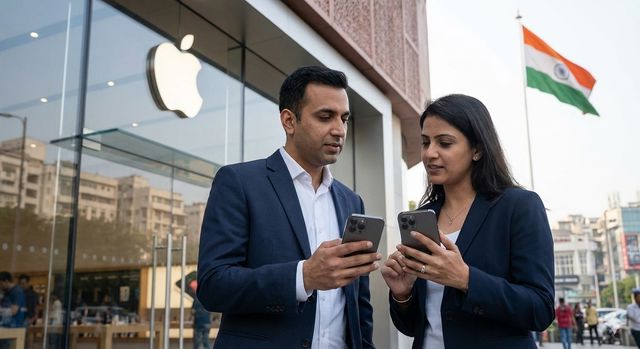OpenAI’s Strategic Pivot
OpenAI has announced a bold shift in strategy, skipping its anticipated O3 model to focus entirely on the development of GPT-5. This decision, revealed by OpenAI’s CEO Sam Altman, reflects an urgent need to stay ahead in the rapidly evolving AI arms race, particularly against competitors like DeepSeek and other major players in the AI space.
This strategic shift promises an integrated, multi-modal AI experience, merging advanced reasoning, voice interaction, and chain-of-thought capabilities that significantly enhance AI’s reliability and accuracy.
But why does this move matter? What technological breakthroughs will GPT-5 introduce, and what does it mean for cybersecurity professionals, tech enthusiasts, and the future of AI-powered applications?
Why OpenAI Is Skipping O3 and Jumping to GPT-5
According to OpenAI, GPT-5 represents a fundamental step forward, integrating next-generation AI capabilities to create a more cohesive and powerful model. The decision to bypass the O3 intermediate release comes amid criticism of OpenAI’s slowed development pace and the growing threat from competitors like DeepSeek.
Key Reasons Behind the Shift
- Complex AI Roadmaps Need Simplification: OpenAI aims to streamline its product lineup, eliminating confusion caused by incremental models.
- Growing Competition from China: DeepSeek’s R1 model has demonstrated performance on par with OpenAI’s O1, pushing OpenAI to accelerate development.
- Need for Smarter AI Reasoning: GPT-5 will introduce enhanced reasoning models, making AI more reliable, context-aware, and capable of self-verification.
- AI Infrastructure Consolidation: OpenAI wants to merge its diverse AI capabilities, ensuring seamless interaction between text, voice, vision, and search functions.
By focusing on GPT-5, OpenAI plans to leapfrog its competition and establish itself as the undisputed leader in next-gen AI.
What GPT-5 Will Bring to the AI World
GPT-5 is expected to redefine AI capabilities, particularly in cybersecurity, research, and human-computer interaction.
Unified AI Intelligence (“Magic AI”)
Sam Altman has described OpenAI’s vision as creating an “unified and magical” AI experience. What does this mean?
- Cross-Platform Intelligence: GPT-5 will integrate text, speech, and vision processing into a single coherent AI model.
- Adaptive AI Thinking: Using advanced chain-of-thought models, GPT-5 will self-correct errors, reducing hallucinations in AI-generated responses.
- More Human-Like Interaction: Expect AI to become more intuitive, with natural language interactions that feel closer to human intelligence.
Smarter Security, Better Decision-Making
For cybersecurity experts, GPT-5 could bring revolutionary applications:
- Automated Cyber Threat Analysis: AI will predict and prevent cyberattacks before they happen.
- Advanced Phishing Detection: GPT-5 will analyze email, text, and voice to detect sophisticated phishing attempts.
- Real-Time Anomaly Detection: AI-powered threat intelligence will help CISOs and SOC teams prevent zero-day exploits.
With quantum computing and AI-powered attacks on the rise, cybersecurity professionals need AI tools that understand, predict, and neutralize threats proactively.
OpenAI vs. DeepSeek: The AI Arms Race
One of the biggest pressures on OpenAI comes from DeepSeek, a rising AI giant from China.
- DeepSeek’s R1 Model: Demonstrated performance equal to OpenAI’s O1, forcing OpenAI to accelerate innovation.
- Chinese AI’s Growing Influence: With state-backed funding, DeepSeek is positioned to challenge Western AI dominance.
- Security Concerns: As AI models become more advanced, there is growing concern about AI misuse in cyber warfare, misinformation, and deepfake generation.
This fierce competition means OpenAI cannot afford to slow down—hence the decision to prioritize GPT-5 over incremental updates.
Challenges & Ethical Considerations in AI Development
While GPT-5 promises unparalleled capabilities, AI development brings serious ethical and technical challenges.
- Data Security & AI Governance: How will OpenAI ensure data privacy and compliance with GDPR and global AI regulations?
- Bias & Misinformation Risks: Can AI-generated content be trusted, or will biases and errors persist?
- AI Job Displacement: With AI becoming more autonomous, how will industries adapt to the evolving workforce?
Addressing these critical concerns will determine how effectively AI integrates into businesses, cybersecurity, and society as a whole.
What This Means for the Future of AI
The shift from O3 to GPT-5 marks a defining moment in AI evolution, setting the stage for a more advanced, reliable, and multi-functional AI platform.
Key Takeaways
- GPT-5 will introduce enhanced reasoning, AI self-correction, and unified multi-modal capabilities.
- Cybersecurity experts can expect AI-driven threat intelligence, anomaly detection, and phishing prevention.
- DeepSeek’s rapid advancements are pushing OpenAI to innovate faster and maintain leadership.
- Ethical AI governance remains a crucial challenge in securing AI’s future role in cybersecurity.
As OpenAI races toward GPT-5, the AI industry is moving into a new era of smarter, more interconnected, and security-focused AI solutions. The question remains: Will OpenAI maintain its lead, or will DeepSeek and other challengers reshape the AI landscape?
FAQs: OpenAI’s GPT-5 & AI Future
1. Why is OpenAI skipping O3 and moving directly to GPT-5?
OpenAI is prioritizing long-term AI innovation over incremental updates, ensuring a more powerful and cohesive AI system.
2. What improvements will GPT-5 introduce?
GPT-5 will feature enhanced reasoning, better self-verification, seamless multimodal capabilities, and advanced cybersecurity applications.
3. How does GPT-5 compare to DeepSeek’s R1 model?
DeepSeek’s R1 model rivals OpenAI’s O1, forcing OpenAI to accelerate its AI development roadmap.
4. How will GPT-5 impact cybersecurity?
GPT-5 will assist SOC teams, CISOs, and cybersecurity experts with threat intelligence, AI-driven anomaly detection, and phishing prevention.
5. What are the biggest ethical concerns surrounding GPT-5?
AI governance, data security, misinformation, and job displacement remain critical challenges that OpenAI must address.


